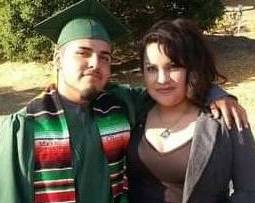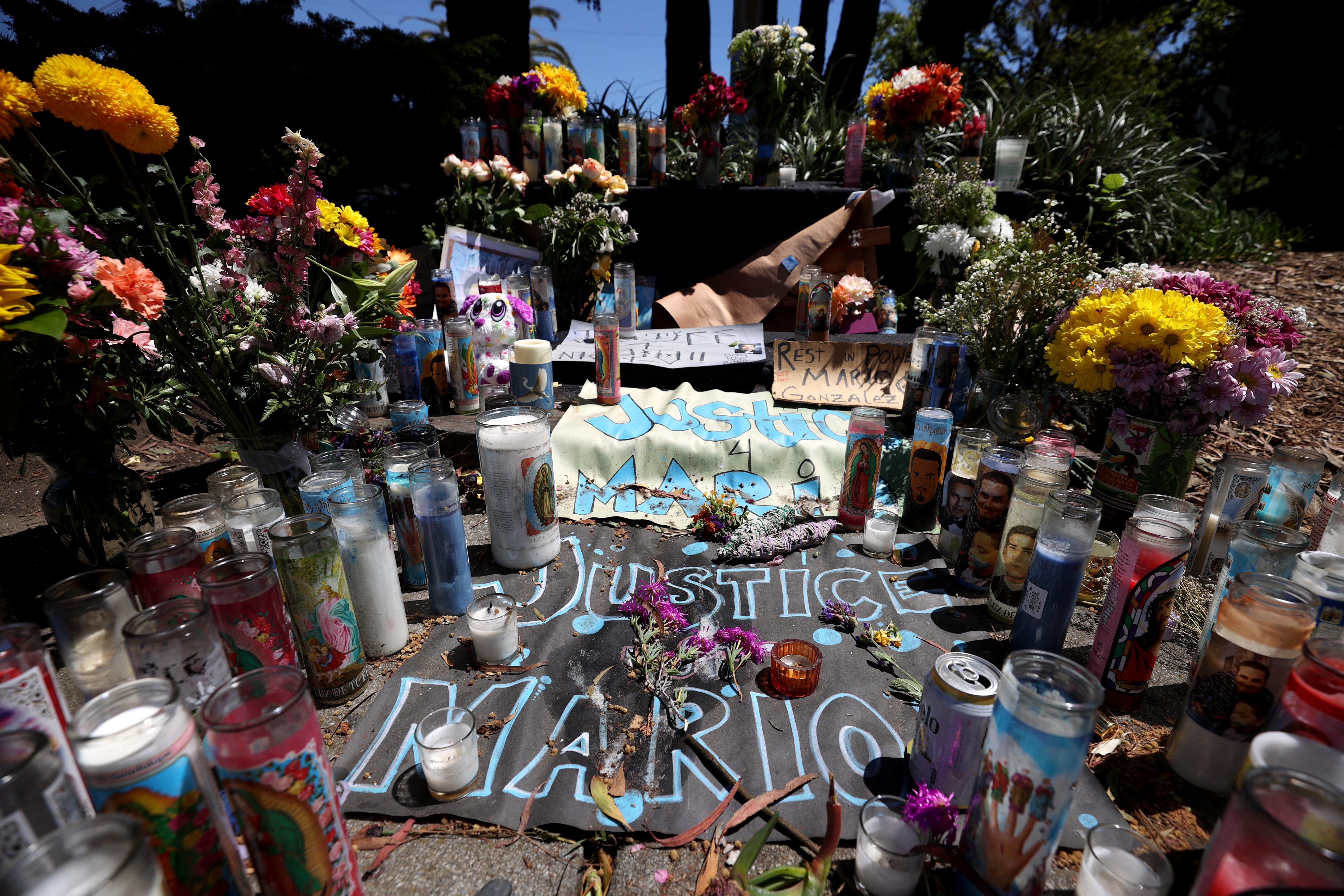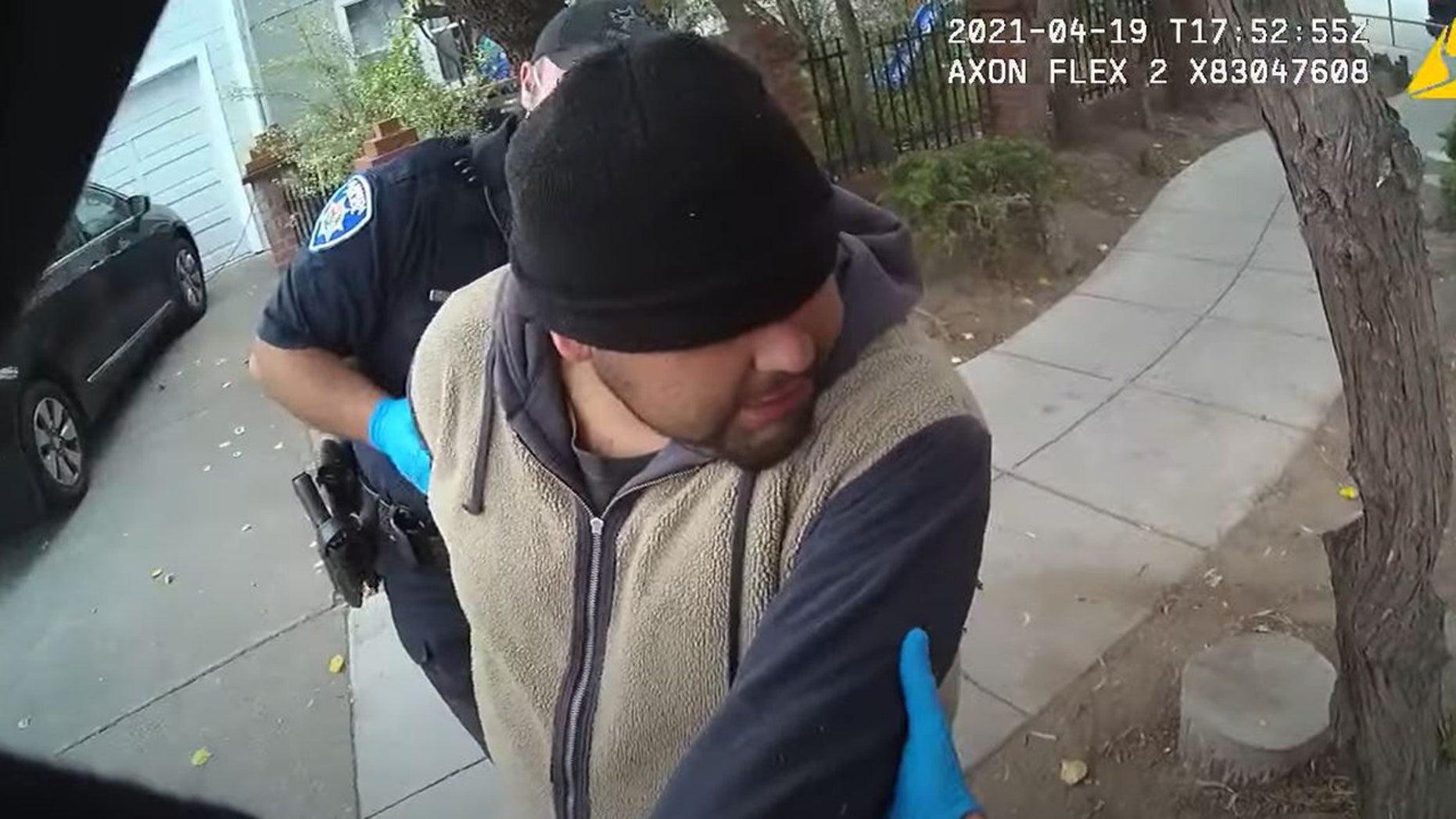George Floyd anniversary: Mario Gonzalez killed in a police hold that was like ‘drowning on dry land’
Death of Mario Arenales Gonzalez came one day before George Floyd’s killer was convicted by Minneapolis court, writes Andrew Buncombe


Your support helps us to tell the story
From reproductive rights to climate change to Big Tech, The Independent is on the ground when the story is developing. Whether it's investigating the financials of Elon Musk's pro-Trump PAC or producing our latest documentary, 'The A Word', which shines a light on the American women fighting for reproductive rights, we know how important it is to parse out the facts from the messaging.
At such a critical moment in US history, we need reporters on the ground. Your donation allows us to keep sending journalists to speak to both sides of the story.
The Independent is trusted by Americans across the entire political spectrum. And unlike many other quality news outlets, we choose not to lock Americans out of our reporting and analysis with paywalls. We believe quality journalism should be available to everyone, paid for by those who can afford it.
Your support makes all the difference.Police have killed at least 229 Black people among a total of426 people of colour since former Minneapolis police officer Derek Chauvin murdered George Floyd on 25 May, 2020. Each case is different, but many share core similarities: quick encounters, for low-level infractions, met with deadly force, leaving families and communities with unanswered questions.
There is police video footage of the last moments of Mario Gonzalez’s life, and it is deeply distressing to watch.
For more than five minutes, officers pinned the unarmed man face down onto the ground, and handcuffed him. You can hear him grunt, as his face is squeezed onto the ground while several officers hold him steady.
“I just think you’ve had too much to drink today,” says one officer. Another says: “Mario stop kicking.”
As the seconds continue you can hear one officer saying in an apparent caution to his colleagues: “We have no weight on his chest, nothing.”
A second appears to warn, “No weight, no weight.”
Moments later, the 26-year-old does stop moving, and officers frantically realise the incident is turning into tragedy.
“Have you got a pulse,” asks one, before an officer carries out CPR to try and save the young man’s life. He is not successful.
Mario Arenales Gonzalez lost his life one day before a jury in the trial of Minneapolis police officer Derek Chauvin found him guilty of murdering George Floyd. Like Floyd, Gonzalez was unarmed and appeared to represent no threat to officers in Alameda, California.
An autopsy has not yet been made public. Lawyers for the family believe the young man, who had a four-year-old son also called Mario, died of asphyxia, as a result of being pinned down. “The video showed that he died on the ground with his face on the floor with officers on top of him,” his elder brother, Jerry Gonzalez, told the Associated Press.
Lawyer Julia Sherwin said: “It would feel like drowning on dry land for him.”
Activists say that in the swirl of news headlines and the 24/7 nature of modern life, victims of police violence or malpractice risk becoming little more than a statistic, their lives condensed to a few sentences at most, before everyone moves on to the next tragedy. It is one of the reasons for chants such as “Say His Name” at protests and vigils.

In the days since Mr Gonzalez died on April 19, his family and friends have sought to fill out the details of a life cut short, after police said they were called to respond to someone who appeared intoxicated in a city park. (His lawyers say that toxicology results are still pending and, regardless, officers are only authorised to intervene if someone is incapacitated, which Mario was not.)
His family said that he spent most of his time tending for his younger brother, Efrain, 22, who has autism. Mr Gonzalez had worked at a pizza restaurant, but lost his job when the pandemic struck. He then became Efrain’s de facto full time carer.
“I have always thought that people who take care of people with disabilities have a gift. My son had that gift,” his mother Edith Arenales told the network.
On April 16, Mr Gonzalez’s older brother had travelled home from college in North Carolina to attend his mother’s birthday party. Such events had always been important to the family, and Mario’s mother loved having her sons together.
As it was, the 26-year-old was killed the day before his mother’s birthday, and four days before Efrain turned 23.
Lawyers for the family have described Mr Gonzalez, who graduated from Coliseum College Prep Academy in Oakland in 2013, as a devoted son, father and sibling. Last Mother’s Day, when he became unemployed, Mario was unable to buy his mother a gift, but instead played songs on his guitar for her.
Ms Sherwin told The Independent she has spent 26 years in criminal practice, and has become something of a specialist in so-called postural asphyxia in police custody, which is when someone cannot breathe properly because of the position their body has been placed in by officers. As it happens, she last year served as a consultant with prosecutors in Minnesota, who tried and convicted Derek Chauvin.
She said, as in the case of George Floyd, originally described as a response to a medical emergency, police involved in the death of Mr Gonzalez also issued a press release that was misleading.
“I mean, they could cut and paste from these press releases, which don’t bear any relationship with reality,” she said
“I think one of the big problems in the United States is inadequate [police] training, we do not have a national, federally mandated or federally supervised training programme in the United States, for police officers. So it’s left to the individual jurisdictions, each state has police standards.”

Ms Sherwin says it has been known for decades that the use of prone restraint, with weight on the back of a person, often leads to the death of suspects. Given the amount of discussion surrounding how George Floyd was killed, police across the nation should be alert to such issues.
She says in 2018, Alameda police killed an Iraqi war veteran, Shelby Gattenby, after tasering him five times, putting him prone to the floor and then adding the weight of their bodies to keep him still. He stopped breathing and died nine days later in hospital. In 2020, the city of Alameda paid $250,000 to settle a lawsuit filed by Gattenby’s mother, who said police violated her 40-year-old son’s civil rights.
“So certainly, by the time of George Floyd’s death police departments around the country should have prohibited not only neck restraints, or chokeholds – lots of departments and even the state of California have now prohibited chokeholds – but also prone restraint because that impairs a person’s ability to breathe, and make it very likely that they’ll die from asphyxiation,” she says.
The lawyers have demanded a federal investigation into Mr Gonzalez’s death, and also claim his civil rights were denied. There was no reason for police to arrest him, said Ms Sherwin, and no need for them to kill him.
An initial press release by the police department claimed officers attempted to detain Mr Gonzalez and that a “physical altercation ensued”, before the young man had a “medical emergency”. The video does not appear to show any real altercation.
Mr Gonzalez’s older brother told the Associated Press he had not suffered a “medical emergency” per se.
“The medical emergency that they’re talking about was induced by three officers on his back.”
A spokesperson for the city said in a statement it was “committed to full transparency and accountability in the aftermath of Mr Gonzalez’s death”.
The spokesperson added: “Three investigations into his death have been initiated: criminal investigations by the Alameda County Sheriff’s Department and Alameda County District Attorney’s Office, and an independent outside investigation by Louise Renne of Renne Public Law Group, who was hired by the City Manager.”
It said four involved police department employees had now been interviewed by both the District Attorney’s Office and the Sheriff’s Department. Those employees were police officer James Fisher, hired in 2010, and officers Cameron Leahy and Eric McKinley, hired in 2018. All three police officers remain on paid administrative leave. Civilian parking enforcement employee Charlie Clemmens was also involved and is also on leave.
Alameda’s mayor Marilyn Ashcraft, told The Independent she could not talk specifically about the death of Mr Gonzaelez because it was the subject of ongoing investigations.
Yet she said the city was trying to change the way its police were dispatched and made use of, and suggested cases involving people suffering from mental health problems, or else the homeless, would be better served not by an interaction with an armed police officer.
“Among the things I think need to happen and are actually happening in our city, is a difference in the way that we respond to calls for service that over the years,” she said.
“Certain programmes were cut [in the past], and then the default response became to call the police. This might be cases involving mental illness, substance abuse, homelessness, or a combination of any of those. And so we have to look at providing better models.”
The mother of the young man, who had put off going to college in order work to support his family, said she had struggled to watch the video showing his death.
“We can’t accept this because we are brown or Black or Hispanic like me. We are citizens, we pay taxes, we live here,” she told CNN. “It has happened to a lot of people, and because they don’t have [legal immigration status], because they don’t speak English... they are scared and stay quiet.”
She added: “I saw his last moments of his life. I saw when he asked for help ... to let him breathe.”



Join our commenting forum
Join thought-provoking conversations, follow other Independent readers and see their replies
Comments